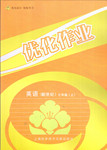题目内容
He was inspired to start again ________ he had failed
- A.where
- B.in which
- C.when
- D.what
试题分析:考查地点状语从句。句意:他受到了激励,想要从跌倒的地方重新开始。从结构判断此处应该是状语从句,从句he failed是主谓结构,缺少状语,所以排除B,D选项,而从情理判断人应该是从失败的地方重新开始,所以A选项正确。
考点:考查地点状语从句。

 培优三好生系列答案
培优三好生系列答案 优化作业上海科技文献出版社系列答案
优化作业上海科技文献出版社系列答案
| |||||||||||||||||||||||||||||||||||||||||||||||||||||||||||||||||||||||||||||||||||||||||||||||||||||||||||||||||||||||||||||||||||||||||||||||||||||||||||||||||||||||||||||||||||||||||||||||||||||||||||||||||||||||||||||||||||||||||||||||||||||||||||||||||||||||||||||||||||||||||||
完型填空(共20小题;每小题1.5分,满分30分)
阅读下面短文,掌握其大意,然后从36—55各题所给的四个选项(A、B、C和D)中,选出最佳选项,并在答题卡上涂黑。
My mother knew that she could not send me to college and pay for it.If I wanted to go to college, it was up to roe to find out how to get there.I found that I 36 for some grants (助学金).There was enough to 37 school and books, but not enough for room and board.I accepted a job as part of a work-study program.I washed dishes in the school cafeteria.My grades went 38 .It was the hardest work I had 39 done.
Just when I thought I was going to 40 of my college career, a friend told me that his grandmother needed help on the weekends. 41 that was required of me was cooking meals. Now I would have time to study.I went to meet his grandmother and accepted the job.My first 42 was his grandmother' s great love of music.One day, she told me I didn't have enough 43 in my life and decided to teach me the art.Grandma was 44 with my ability and encouraged me to continue.Weekends became more than just books and cooking; they were 45 the wonderful sounds of the piano and two singers.
When Christmas break came, Grandma got a chest cold 46 I was unwilling to leave her.I hadn't been home since Labor Day, and my family was 47 to see me.I said my good-bye, 48 for her temporary care and returned home. 49 I was loading my car to go back to school, the phone rang and my friend told me Grandma died.I hung up the phone feeling like my world had ended.I had 50 my friend, and that was 51 worse than knowing I would have to return to dishwashing.
Four weeks later, I asked to begin the work-study program again.The financial aid advisor looked at me 52 I had lost my mind.I 53 my position, then he smiled and slid me an envelope which was from Grandma.She had known how sick she was.In the envelope was enough money to pay for the rest of my school year and a request that I take piano lessons in her 54 . Now, years later, when I walk by a piano, I 55 and think of Grandma.She is playing the piano in heaven, I am sure.
|
1. |
|
|
2. |
|
|
3. |
|
|
4. |
|
|
5. |
|
|
6. |
|
|
7. |
|
|
8. |
|
|
9. |
|
|
10. |
|
|
11. |
|
|
12. |
|
|
13. |
|
|
14. |
|
|
15. |
|
|
16. |
|
|
17. |
|
|
18. |
|
|
19. |
|
|
20. |
|

